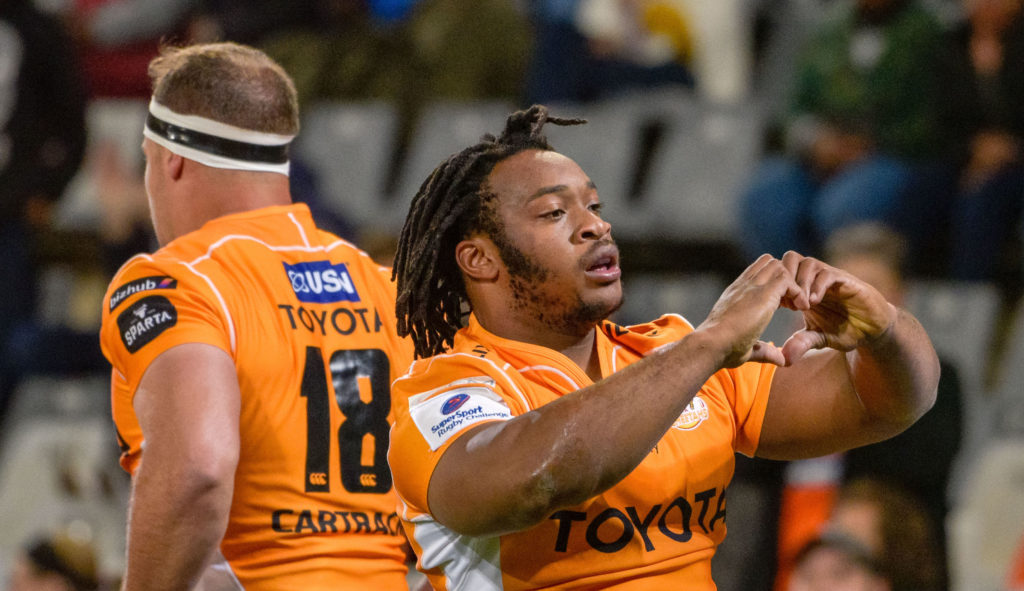The comments made by France-bound Cheetahs hooker Joseph Dweba have served as an interesting case point of how modern-day society views outspoken sports stars, writes CRAIG LEWIS.
Like many sports fans, I’m sure, some of my best viewing experiences during this lockdown period has been provided by the fascinating Netflix documentary series The Last Dance, which unpacks the untold story of Michael Jordan’s legendary Chicago Bulls.
In an enthralling 10-part series, one of the most entertaining off-court moments came in the recently released final two episodes, which highlighted a remarkable ‘no-show’ from maverick Bulls forward Dennis Rodman.
During the Bulls’ run in the 1998 NBA finals, Rodman failed to pitch up at a training session, with world-class coach Phil Jackson none the wiser as to the whereabouts of his eccentric superstar.
As it turned out, the flamboyant Rodman had turned up for a cameo appearance alongside Hulk Hogan in the World Wrestling Championship arena. Yes, you read that correctly.
It was a bizarre moment, but what also struck me was the reaction from Jackson. The coach knew and appreciated that Rodman was a complete maverick, a person prone to wild behaviour, but one who would give nothing but his absolute best when called into action.
Of course, it was a different time, and some quiet words may have been spoken behind closed doors, but it stood out that Rodman wasn’t disciplined or suspended, with Jackson realising the ‘wild child’ side of his player had to be accepted.
These were the days when sports stars were revered, but without the advent of social media and heightened professionalism players could get away with a lot more, while their quirks and outspoken comments were generally taken a lot more lightly at a time when sport was there for pure entertainment.
It all just got me wondering why recent comments made by Dweba seemed to receive such a severe backlash.
To recap, the highly regarded hooker was in the news on Tuesday after a candid RugbyPass interview surfaced in which he opened up on various wide-ranging events throughout his playing career and expressed unhappiness at past mistreatment.
Referencing a variety of experiences, Dweba said he grew extremely frustrated with mixed messages from some former coaches and limited game time, while he also spoke about an old contract offer that he described as ‘shitty’.
As explained in a subsequent interview with SARugbymag.co.za on Tuesday night, though, Cheetahs coach Hawies Fourie said he had since spoken with Dweba to clear the air, and reiterated there were no ill feelings, while also clarifying the hooker was referring to a contract from a couple of years ago.
When one looks at some of Dweba’s comments at face value, you have to wonder whether the 24-year-old chose the correct manner and time to so openly discuss past unhappiness as he shot from hip with various verbal volleys.
‘Sorry for my language, but I have been b****** and f***** around so many times,’ was one comment in reference to limited opportunities at the Cheetahs a few seasons ago. ‘I was getting a minute here, two minutes there. I never got clear game time.’
And so it went on, with Dweba opening up on various subjects, but of course a fair bit of context was lost as social media channels and websites picked up on the strongest headline-grabbing angles.
This is the way the modern world we live in operates, with a society that is quick to spark to outrage, particularly when the usual decreed levels of political correctness are not followed.
None of this is to say Dweba wasn’t out of line in some regards, and may regret certain comments, but Fourie also provided real context on the subject, and reiterated the hooker would not be leaving on a bad note.
Hawies: No hard feelings with Dweba
What I do still wonder is why there were so many who reacted with immediate anger and dismay over Dweba’s comments. Sure, there may be disagreement over some of how or why he said certain things, but just because you may disagree, does that mean he shouldn’t be entitled to freedom of speech?
In a world where any journalist will tell you about the dread that comes with cliched sound bytes and carefully monitored quotes, can’t we also be open to a sports star telling it like it is without fear of reprisal?
There are certain role-players who might have been rubbed the wrong way by what Dweba had to say but – as was the case with Fourie – these matters are quite easily resolved on a personal level once full context is provided.
Maybe it’s just time to stop putting sports stars on such a pedestal, while expecting them to emulate robots rather than allowing them the leeway to express themselves with honesty.
As Dennis Rodman proved, not everyone is the same, and that’s not necessarily a bad thing.





